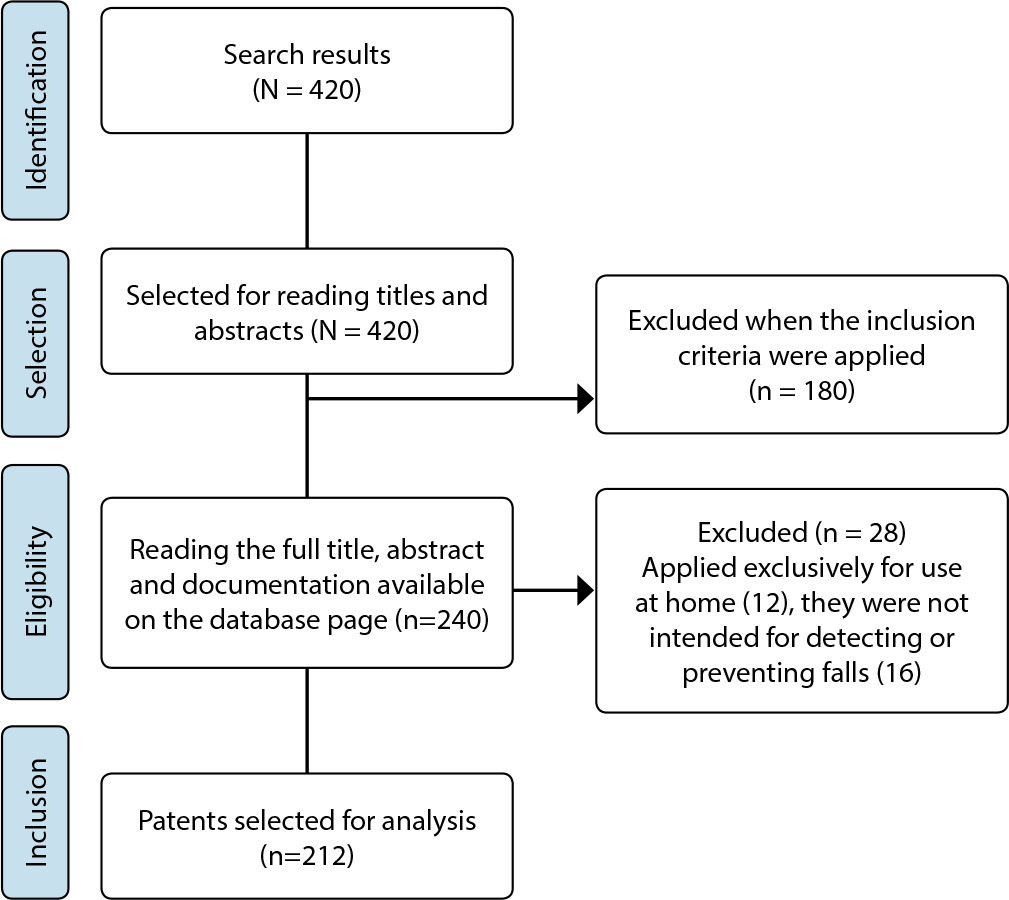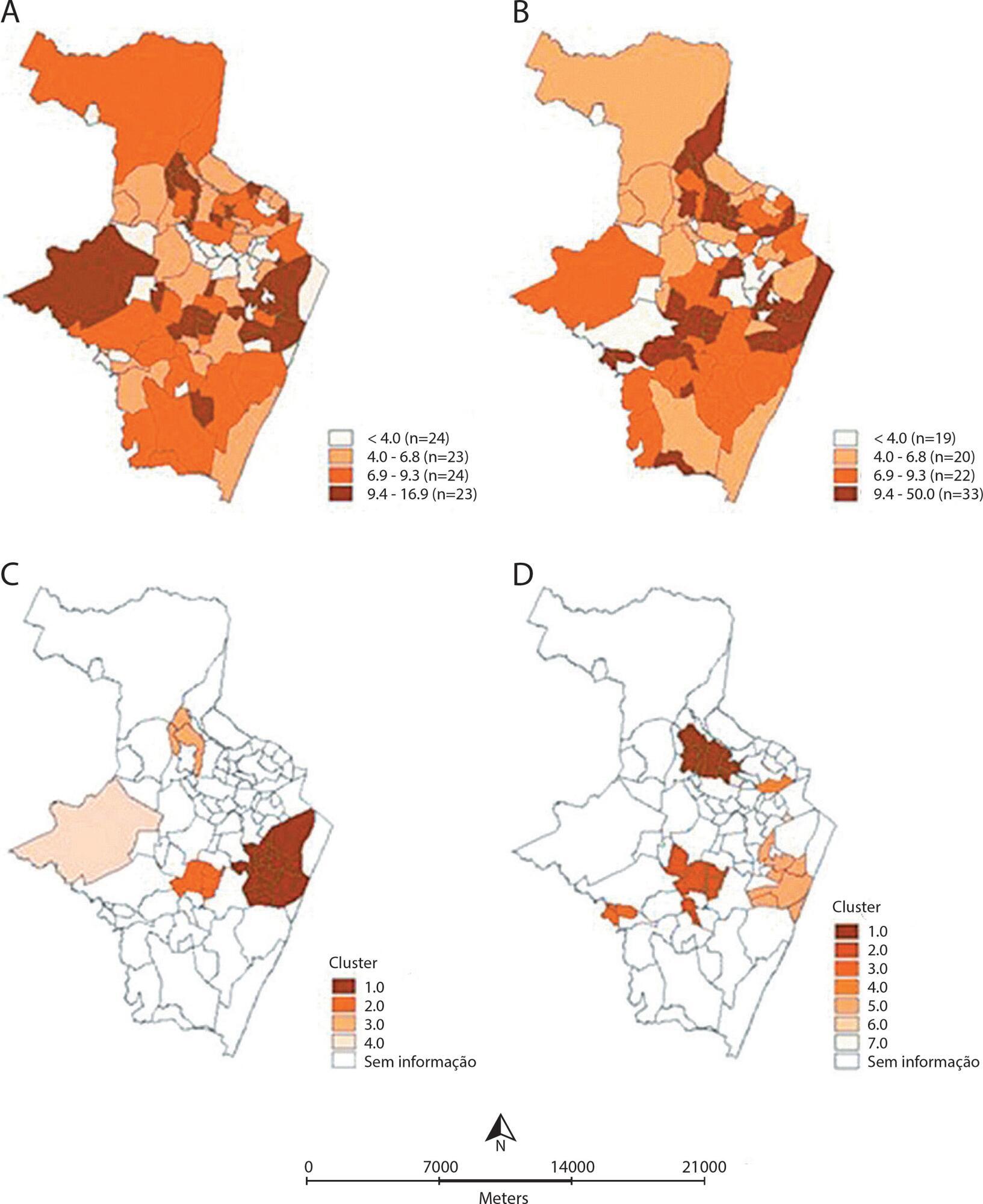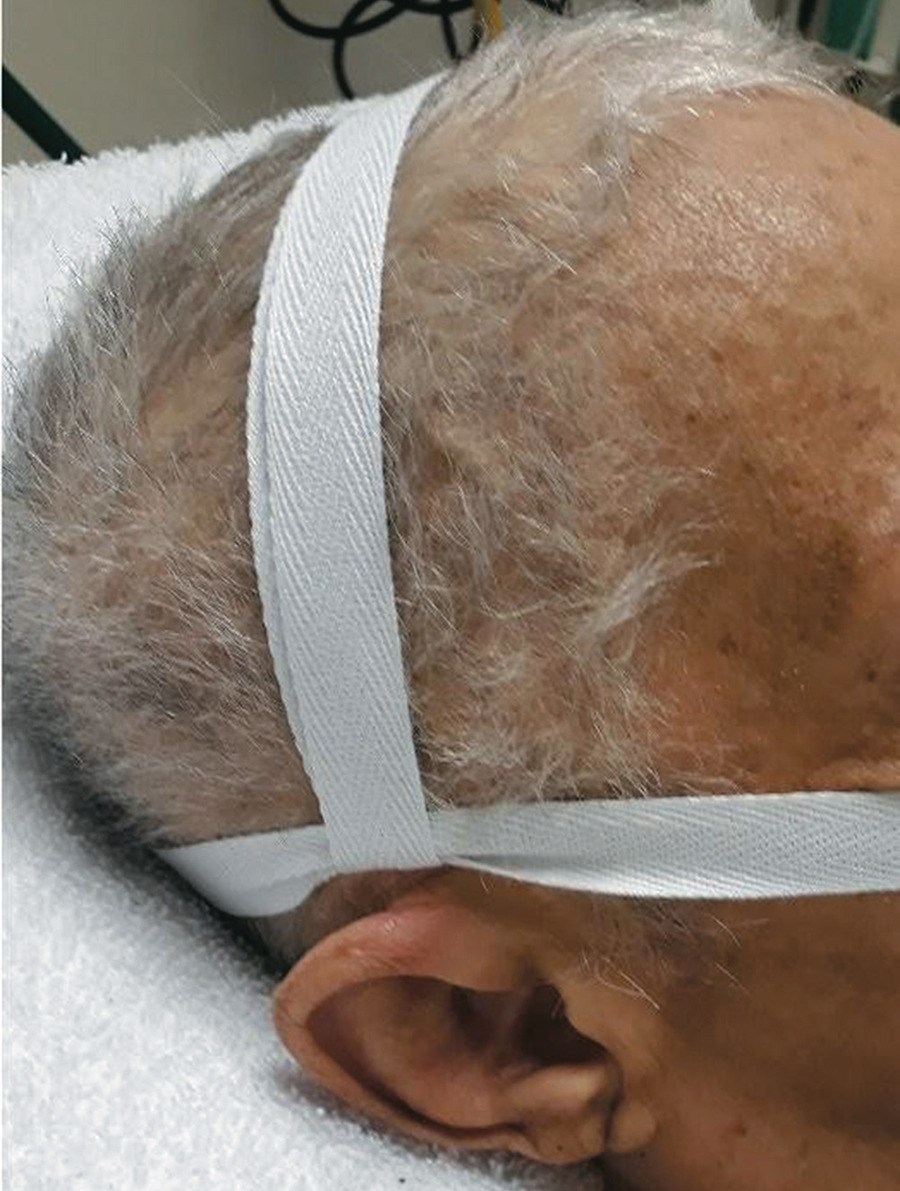-
02-26-2024
Nurse Navigator of Cancer Patients: contributions to the discussion on the national stage
Revista Brasileira de Enfermagem. 2024;77(2):e770201
Abstract
Nurse Navigator of Cancer Patients: contributions to the discussion on the national stage
Revista Brasileira de Enfermagem. 2024;77(2):e770201
DOI 10.1590/0034-7167.2024770201
Views0The professional practice of patient navigation is incipient in Brazil and, therefore, a broad discussion with various sectors of society is essential, which is the main purpose of this editorial. Shall we start with the story. Patient navigation was defined in 1989 as a community-based service delivery intervention aimed at appropriately promoting access to diagnosis […]See more -
REVIEW02-26-2024
Evidence of intrauterine device insertion by nurses in Primary Health Care: an integrative review
Revista Brasileira de Enfermagem. 2024;77(1):e20230134
Abstract
REVIEWEvidence of intrauterine device insertion by nurses in Primary Health Care: an integrative review
Revista Brasileira de Enfermagem. 2024;77(1):e20230134
DOI 10.1590/0034-7167-2023-0134
Views0See moreABSTRACT
Objectives:
to synthesize and analyze evidence on intrauterine device insertion by nurses in Primary Health Care.
Methods:
an integrative review, carried out in the BDENF, CINAHL, LILACS, SciELO, Scopus, PubMed and Web of Science databases in June 2022, delimiting the period from 1960 to 2022.
Results:
141 articles were identified in the initial search, and 10 studies made up the final sample. Four (40%) were developed in the United States and one (10%) in Brazil, with publications from 1979 to 2021. The findings were grouped into three categories: Nurse training to insert an intrauterine device; Nurses’ competency to insert an intrauterine device; and Women’s access to intrauterine devices.
Conclusions:
nurse theoretical and practical training is a prominent element, consolidated in the favorable outcomes of insertions performed by nurses and satisfaction among women, a practice that has expanded access to the contraceptive method in Primary Health Care.

-
ORIGINAL ARTICLE02-26-2024
Artificial intelligence to predict bed bath time in Intensive Care Units
Revista Brasileira de Enfermagem. 2024;77(1):e20230201
Abstract
ORIGINAL ARTICLEArtificial intelligence to predict bed bath time in Intensive Care Units
Revista Brasileira de Enfermagem. 2024;77(1):e20230201
DOI 10.1590/0034-7167-2023-0201
Views0See moreABSTRACT
Objectives:
to assess the predictive performance of different artificial intelligence algorithms to estimate bed bath execution time in critically ill patients.
Methods:
a methodological study, which used artificial intelligence algorithms to predict bed bath time in critically ill patients. The results of multiple regression models, multilayer perceptron neural networks and radial basis function, decision tree and random forest were analyzed.
Results:
among the models assessed, the neural network model with a radial basis function, containing 13 neurons in the hidden layer, presented the best predictive performance to estimate the bed bath execution time. In data validation, the squared correlation between the predicted values and the original values was 62.3%.
Conclusions:
the neural network model with radial basis function showed better predictive performance to estimate bed bath execution time in critically ill patients.
-
ORIGINAL ARTICLE02-26-2024
Technological prospecting of patents related to monitoring accidents due to falls in hospitals
Revista Brasileira de Enfermagem. 2024;77(1):e20230084
Abstract
ORIGINAL ARTICLETechnological prospecting of patents related to monitoring accidents due to falls in hospitals
Revista Brasileira de Enfermagem. 2024;77(1):e20230084
DOI 10.1590/0034-7167-2023-0084
Views0See moreABSTRACT
Objectives:
to map the production of technologies aimed at monitoring falls in a hospital environment protected by registered patents.
Methods:
a technological prospecting of international patents, with a quantitative approach, with search carried out between February and March 2022 in the Derwent Innovations Index database with descriptors fall, hospital, monitoring.
Results:
212 patents were found, with the majority filed and published since 2010, by Tran B (9) and Cerner Innovation Inc (9), focused on health technology. Universities were responsible for 13% of deposits. There was a predominance of records from the United States (43.4%), China (21.7%) and Japan (12.3%), in addition to technological strategies classified as devices for the environment (80.7%) and for preventing falls (66.5%) as well as trend towards resources with multiple functionalities in the same technology.
Conclusions:
the plurality of functions in the same device reflects the search for optimizing resources and the concern with comprehensive care.

-
ERRATUM02-26-2024
ERRATUM
Revista Brasileira de Enfermagem. 2024;77(1):e20230045
Abstract
ERRATUMERRATUM
Revista Brasileira de Enfermagem. 2024;77(1):e20230045
DOI 10.1590/0034-7167.20247701e04
Views2In the article “Coping strategies for chronically ill children and adolescents facing the COVID-19 pandemic”, with DOI number: , published in Revista Brasileira de Enfermagem, 2023;76(Suppl 2):e20230045, in the author:Where it read:[…]See more -
ERRATUM02-26-2024
ERRATUM
Revista Brasileira de Enfermagem. 2024;77(1):e2024n1e02
Abstract
ERRATUMERRATUM
Revista Brasileira de Enfermagem. 2024;77(1):e2024n1e02
DOI 10.1590/0034-7167.20247701e02
Views2In the article “Active teaching model to promote critical thinking”, with DOI number: , published in Revista Brasileira de Enfermagem, 2019;72(1):293-8, on page 297:Include before REFERENCES:[…]See more -
ERRATUM02-26-2024
ERRATUM
Revista Brasileira de Enfermagem. 2024;77(1):e20160061
Abstract
ERRATUMERRATUM
Revista Brasileira de Enfermagem. 2024;77(1):e20160061
DOI 10.1590/0034-7167.20247701e03
Views2In the article “Nurses in the labor market: professional insertion, competencies and skills”, with DOI number: , published in Revista Brasileira de Enfermagem, 2017;70(6):1220-6, on page 1225:Include before REFERENCES:[…]See more -
REVIEW02-26-2024
Practice of immersion in hot water to relieve pain in neonatology: an integrative review
Revista Brasileira de Enfermagem. 2024;77(1):e20230260
Abstract
REVIEWPractice of immersion in hot water to relieve pain in neonatology: an integrative review
Revista Brasileira de Enfermagem. 2024;77(1):e20230260
DOI 10.1590/0034-7167-2023-0260
Views1See moreABSTRACT
Objectives:
to identify immersion use in hot water to relieve pain in newborns.
Methods:
an integrative literature review, carried out in the PubMed, VHL, EMBASE, Scopus, CINAHL, Cochrane and SciELO databases, with investigations in English, Spanish, French or Portuguese, published between 2002 and 2022. The Health Sciences Descriptors (DeCS) and Medical Subject Headings (MeSH) were used to answer the following question: what are the uses of hot water immersion in relieving pain in newborns?
Results:
nine studies were included, mainly Brazilian, experimental, with a predominance of strong and moderate levels of evidence. Hydrotherapy and bath use (immersion and bandaging) was observed, promising interventions in reducing pain scores, assessed using scales, physiological and endocrine parameters.
Conclusions:
hot water proved to be a promising non-pharmacological intervention in relieving pain in infants in different contexts.

-
ORIGINAL ARTICLE07-15-2020
Spatial analysis of inequalities in fetal and infant mortality due to avoidable causes
Revista Brasileira de Enfermagem. 2020;73:e20190088
Abstract
ORIGINAL ARTICLESpatial analysis of inequalities in fetal and infant mortality due to avoidable causes
Revista Brasileira de Enfermagem. 2020;73:e20190088
DOI 10.1590/0034-7167-2019-0088
Views0See moreABSTRACT
Objectives:
to analyze social inequalities in spatial distribution of fetal and infant mortality by avoidable causes and identify the areas of greater risk of occurrence.
Methods:
avoidable deaths of fetal and infant residents of Recife/Brazil were studied. The rates of avoidable fetal and infant mortality were calculated for two five-year periods, 2006-2010 and 2011-2015. The scan statistics was used for spatial analysis and related to the social deprivation index.
Results:
out of the total 2,210 fetal deaths, 80% were preventable. Avoidable fetal mortality rates increased by 8.1% in the five-year periods. Of the 2,846 infant deaths, 74% were avoidable, and the infant mortality rate reduced by 0.13%.
Conclusions:
in the spatial analysis, were identified clusters with higher risk for deaths. The social deprivation index showed sensibility with areas of worse living conditions.

-
05-21-2021
Men’s mental health in the COVID-19 pandemic: is there a mobilization of masculinities?
Revista Brasileira de Enfermagem. 2021;74:e20200915
Abstract
Men’s mental health in the COVID-19 pandemic: is there a mobilization of masculinities?
Revista Brasileira de Enfermagem. 2021;74:e20200915
DOI 10.1590/0034-7167-2020-0915
Views0See moreABSTRACT
Objective:
to understand how the COVID-19 pandemic mobilizes masculinities in relation to mental health.
Methods:
qualitative study conducted with 400 men, in a virtual environment, in all regions of Brazil. The data were analyzed by the Discourse of the Collective Subject and based on Symbolic Interactionism.
Results:
the mobilization of masculinities emerged from men towards the recognition of weaknesses and psycho-emotional vulnerabilities, with narratives that reveal the expression of feelings, pain, discomfort and psychological suffering, and showed themselves to be sensitive and engaged in performing practices, including autonomous ones, of health care mental.
Final considerations:
the pandemic mobilizes masculinities as men print meanings and senses, in their interaction and interpretation of mental health, and is a marker for the nursing clinic conduct.
-
ORIGINAL ARTICLE03-24-2021
Health promotion actions in the School Health Program in Ceará: nursing contributions
Revista Brasileira de Enfermagem. 2021;74(1):e20190769
Abstract
ORIGINAL ARTICLEHealth promotion actions in the School Health Program in Ceará: nursing contributions
Revista Brasileira de Enfermagem. 2021;74(1):e20190769
DOI 10.1590/0034-7167-2019-0769
Views1See moreABSTRACT
Objectives:
to compare health promotion actions carried out by Family Health teams in Ceará, linked to the School Health Program.
Methods:
a cross-sectional study involving the first and second cycles of an external assessment of 910 and 1,626 teams from 184 municipalities, which joined the Brazilian National Program for Improvement of Access and Quality of Primary Care. Eight clinical assessment and seven health promotion indicators were assessed, together with health professionals working in schools.
Results:
the interviewees were nurses (95.6% and 98.3%). Between the cycles, there was an increase in clinical assessment (78.7% and 91.3%), health promotion and disease prevention (82.5% and 89.3%) and survey of students for follow-up (41.4% and 66.4%) in schools.
Conclusions:
health actions at school advanced between cycles, with nurses as protagonists in school health, which can reduce vulnerabilities in children and adolescents and qualify Primary Care.
-
REVIEW03-19-2021
Influence of burnout syndrome on the quality of life of nursing professionals: quantitative study
Revista Brasileira de Enfermagem. 2021;74:e20200298
Abstract
REVIEWInfluence of burnout syndrome on the quality of life of nursing professionals: quantitative study
Revista Brasileira de Enfermagem. 2021;74:e20200298
DOI 10.1590/0034-7167-2020-0298
Views1See moreABSTRACT
Objective:
To estimate the prevalence and factors associated with the burnout syndrome and quality of life among nursing professionals.
Methods:
Cross-sectional, analytical study, developed with 83 professionals in emergency care units in the city of Campina Grande-PB. A questionnaire was used to characterize the sample, the Maslach Burnout Inventory scale and the SF-36. Data was analyzed using descriptive and inferential statistics.
Results:
Most professionals showed low professional effectiveness (78.3; n=65), average depersonalization (53.0%; n=44) and average emotional exhaustion (55.4%; n=46). There was a statistical difference between the scores of the syndrome and the pain (p=0.03), vitality (p=0.04) and social aspect (p=0.03); significant correlation between the syndrome and vitality (p<0.001), mental health (p=0.01) and general quality of life (p=0.04).
Conclusion:
The burnout syndrome has an influence on the outcome of quality of life of nursing professionals, being more prevalent among professionals with older age, high income and among nurses.
-
ORIGINAL ARTICLE05-03-2021
Medical device-related pressure injury prevention in critically ill patients: nursing care
Revista Brasileira de Enfermagem. 2021;74(2):e20200062
Abstract
ORIGINAL ARTICLEMedical device-related pressure injury prevention in critically ill patients: nursing care
Revista Brasileira de Enfermagem. 2021;74(2):e20200062
DOI 10.1590/0034-7167-2020-0062
Views0See moreABSTRACT
Objectives:
to know the care implemented by the nursing team to prevent medical device-related pressure injuries in critically ill patients.
Methods:
this is a qualitative research conducted with 15 nursing professionals from Intensive Care Unit. Sampling was carried out by theoretical saturation. For data analysis, the Discourse of the Collective Subject technique was used.
Results:
six speeches emerged, whose central ideas were interventions for medical device-related pressure injury prevention: care in fixation; frequent repositioning; protection and padding of body areas in contact; preferences for flexible materials, when available; attention of professionals so that they do not comer under patients; early assessment and removal, when clinically possible.
Final Considerations:
nursing care was directed mainly to respiratory devices, catheters in general and monitoring equipment, indicating that professionals have the knowledge to provide safe assistance consistent with the literature.

-
ORIGINAL ARTICLE10-01-2022
Factors associated with presenteeism in nursing workers
Revista Brasileira de Enfermagem. 2022;75(1):e20201290
Abstract
ORIGINAL ARTICLEFactors associated with presenteeism in nursing workers
Revista Brasileira de Enfermagem. 2022;75(1):e20201290
DOI 10.1590/0034-7167-2020-1290
Views0See moreABSTRACT
Objective:
to analyze factors associated with presenteeism in nursing workers with sociodemographic variables, health and work conditions, productivity and musculoskeletal symptoms.
Methods:
this is a cross-sectional, descriptive and analytical study, with 306 nursing workers from a hospital and municipal emergency room in a Brazilian capital. The Stanford Presenteeism Scale, the Work Limitations Questionnaire, the Nordic Musculoskeletal Questionnaire and a demographic questionnaire on nursing professionals’ working conditions and health were used. Bivariate and multivariate analyzes were performed, respecting a significance level of 5%.
Results:
presenteeism was found in 43.8% of professionals and significant associations with CLT work (p=0.002), workplace – Intensive Care Units (p=0.008), physical exercise twice a week (p=0.008), presence of musculoskeletal symptoms, with low back pain being representative (p=0.001). The productivity loss was 8.8.
Conclusions:
the study confirms a high rate of presenteeism among nursing workers.
-
EXPERIENCE REPORT06-07-2019
Humanitude in the humanization of elderly care: experience reports in a health service
Revista Brasileira de Enfermagem. 2019;72(3):825-829
Abstract
EXPERIENCE REPORTHumanitude in the humanization of elderly care: experience reports in a health service
Revista Brasileira de Enfermagem. 2019;72(3):825-829
DOI 10.1590/0034-7167-2017-0363
Views0See moreABSTRACT
Objective:
To describe the experience in the implementation of the Humanitude Care Methodology (MCH) in the humanization of care for the elderly.
Methodology:
This is an experience report about the implementation of the MCH, in a Health Service in Portugal, with capacity for 30 elderly people, most of them having cognitive alterations.
Results:
The implementation of the MCH has shown positive results in the humanization of care for the elderly, namely in the reduction of agitation behaviors and better acceptance of care. There was a change in organizational culture, more focused on the person and on the humanization of care.
Conclusion:
The results reflect the need to introduce innovative care methodologies in the training of health professionals, with a focus on interaction, for a professionalized relational care that dignifies the person cared for and the care giver.
-
ORIGINAL ARTICLE08-19-2019
Factors related to impaired comfort in chronic kidney disease patients on hemodialysis
Revista Brasileira de Enfermagem. 2019;72(4):889-895
Abstract
ORIGINAL ARTICLEFactors related to impaired comfort in chronic kidney disease patients on hemodialysis
Revista Brasileira de Enfermagem. 2019;72(4):889-895
DOI 10.1590/0034-7167-2018-0120
Views0See moreABSTRACT
Objective:
to analyze the factors related to the impaired comfort of chronic kidney diseases (CKD) patients on hemodialysis.
Method:
this is a cross-sectional study with 80 patients undergoing hemodialysis in a renal replacement therapy unit through interviews using two instruments, one for clinical and sociodemographic characteristics and the General Comfort Questionnaire, during the hemodialysis session. Mann-Whitney tests and the logistic regression model were used for data analysis.
Results:
the study found that being younger (p=0.045); being married (p=0.05); and absence of impaired physical mobility (p=0.007) were contributing factors for greater comfort in CKD patients on hemodialysis. Thus, when establishing the odds ratio, it was possible to observe that being 55 years of age or older, being single and having impaired physical mobility represents a 45.7% chance of developing this diagnosis.
Conclusions:
sociodemographic and clinical variables contribute to the study outcome, demanding attention during the planning of nursing interventions.
Search
Search in:
Nuvem de Tags
Adolescente (85) Atenção Primária à Saúde (239) COVID-19 (91) Criança (91) Cuidados de Enfermagem (269) Educação em Enfermagem (151) Educação em Saúde (139) Enfermagem (930) Enfermagem Pediátrica (86) Estudantes de Enfermagem (77) Estudos de Validação (131) Família (87) Idoso (208) Promoção da Saúde (99) Qualidade de Vida (104) Saúde do Trabalhador (86) Saúde Mental (145) Saúde Pública (82) Segurança do Paciente (150) Tecnologia Educacional (100)



